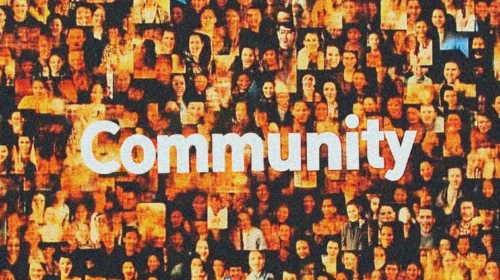Even the most social of butterflies occasionally need a night off, but true social anxiety disorder rarely, if ever, takes a vacation.
Is Anxiety Taking Center Stage in Your Life?
If anxiety is keeping you from the people, places, or things you love, it may be time to seek professional help. Not to sound like a late-night advertisement, but you’re not alone. About 15 million people in the U.S. deal with social anxiety disorder, and that number has been rapidly rising. Why? Well—in addition to more obvious causes such as PTSD, bullying, abuse, and even genetics—the recent turbulence many people have faced in the years following a global pandemic, widespread civil unrest, and increasing access to social media has created the perfect storm for sweaty palms and rising heart rates.
Physical and Emotional Sensations That Are Less Than Sensational
Our bodies and minds are assaulted daily with so much information and stimulation. The thing about social anxiety disorder is that it can happen anytime, anywhere, for seemingly any reason. Here are a few questions you can ask yourself if you’re worried about social anxiety:
- Do I avoid eating in front of others?
- Am I making excuses not to see friends?
- Have I stopped attending events that I used to enjoy?
- Do I feel guilty or depressed?
- Have I experienced panic attacks?
- Do I have trouble breathing when I’m in public?
- Am I finding reasons to stay home?
- Do I feel I am constantly being watched and judged?
Keep in mind that we all feel stress and anxiety in our lives, but for those struggling with SAD, that anxiety becomes crippling, and prevents us from fully enjoying our lives. From eating in public to going to appointments to attending a work Zoom meeting —those of us with social anxiety disorder tend to avoid exposing ourselves to any kind of judgment or criticism.
The Party Pooper of Afflictions
And that’s really the differentiator. We love or need to be able to do these everyday things, but we’re terrified of how we come across. And we’re completely convinced that we’re being judged by everyone around us, even by our beloved pets and family members … especially by them. It’s even worse if we live in a situation where those closest to us aren’t healthy themselves, and obviously can’t be the support we feel we need.
Don’t Let Social Anxiety Disorder Put the “F.U” in Fun
Now that you may have a clearer picture of what’s going on, let’s discuss how to enjoy your life with less fear and more vibes. First, seeking out an expert to help guide you through what may be an emotionally harrowing process is never a bad idea. In addition to therapists, there are many self-help groups out there, and you don’t even have to leave your house to get started!
Of course, we know the goal is to be more comfortable with your life and find ways of dealing with fears or anxiety that will creep up from time to time. But give yourself some grace. Baby steps are still steps in the right direction. Guilt is big with this disorder, and it will keep us from moving forward. It’s ok to make mistakes; just keep going.
The Slippery Slope of Self-Medication
Don’t add to your problems and self-medicate! While “social lubricants” may seem like a fantastic temporary fix, it’s a downhill spiral. Many of us with social anxiety disorder have traveled this road. Once there, complications abound, and then you have that much more to process.
However, if you’re already in that boat, there are ways to get back to the center. You just need the right tools and support.
What’s Out There and How Do I Start?
As mentioned, there are online and in-person meetings of like-minded individuals, as well as programs, techniques, therapists, and facilities dedicated to finding and loving the very best version of yourself.
If you’re reading this post, give yourself credit. It may be the first step toward change. It isn’t easy, but then, life isn’t really known for being easy, is it? Research your options, talk to people (I know, I know … it’s scary, for sure), and you’ll find a whole community out there ready to (gently) embrace and steer you in the right direction.
Plug Into Music
We wouldn’t be Recovery Unplugged if we didn’t mention the power of music. Music is everywhere; we don’t need to tell you that! And if you’re here, reading this, chances are that music is a huge influence in your life whether you listen, play professionally, or just dabble for fun.
Music hits parts of our brain that give us what we need when we need it. From courage, to expunging sadness, to getting out rage in a healthy manner, and just plain experiencing happiness from a good bop. It’s all real medicine. It’s cliché but true: if music were bottled as a prescription, it would be flying off the shelves. There’s a reason that hearing is the last sense to go before we die. It’s integral to who and how we are.
The Rhythm of Recovery
Music allows us to “time travel,” produce nostalgia, encourage empathy, and ease our minds. It’s that powerful. We’re not saying to use it alone, but it’s an extremely effective tool! When used in conjunction with other treatments, it may make the rhythm of your life a beautiful testament to the harmonization of music and mental health and to who you are. You’re special and unique—shouldn’t your life’s soundtrack reflect that?
Hit Us Up!
For more information on music as medicine in all kinds of recovery and how it may specifically help you, reach out to Recovery Unplugged at 1-855-384-5794. Recovery Unplugged is a national behavioral health organization with locations across the country, combining evidence-based practices with music to help clients more readily embrace treatment.

























